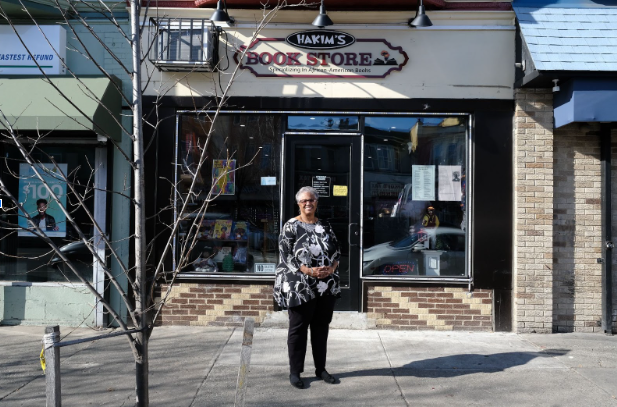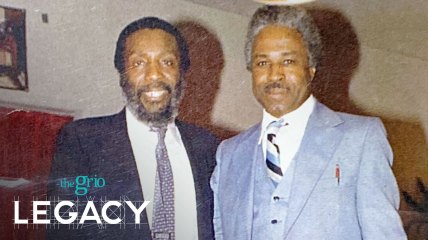Philly’s oldest Black bookstore receives historical marker
Yvonne Blake said her father, Hakim Book Store founder Dawud Abdel Hakim, deserved to be memorialized because of his belief that history strengthened the African-American community.
The oldest Black bookstore in Philadelphia has received a state historical marker over six decades after its launch.
About 100 friends, customers and family members gathered in front of Hakim’s Book Store on Sept. 23 to honor Dawud Abdel Hakim, who set out to ensure Black people knew they had a rich history predating slavery when he started selling books in 1959, The Philadelphia Inquirer reported. Hakim initially worked from the trunk of his car before moving to his namesake store in West Philadelphia.
“In 1959 it was not popular to talk about Black history. Hakim stood tall telling the untold story,” State Sen. Vincent Hughes said on Saturday, The Inquirer reported. “To be in business for 64 years is no small feat.”

Yvonne Blake, Hakim’s daughter who took over the store after his death in 1997, said her father deserved to be memorialized because of his belief that history strengthened the African-American community. “My father would have been overwhelmed,” she said of the historical designation. “It would have brought tears to his eyes.”
Hakim started his book-selling journey as the Black Power movement gained supporters. At the time, then-FBI Director J. Edgar Hoover distributed memos calling bookstores such as Hakim’s “outlets for revolutionary and hate publications and culture centers for extremism.”
Still, Hakim stayed true to his mission, even though making the bookstore profitable wasn’t an easy task. He continued working as a city accountant to support his wife and three kids while running the bookstore, which had few customers and poor sales.
Despite the difficulties, the business expanded. In 1980, Hakim opened a second store in Atlanta and taught history at Morehouse College. Blake closed the Atlanta location when her father died since no relative was nearby to manage the store’s daily operations.
“My father recognized we had a history that didn’t start with slavery,” Blake said. “We had a place and contributed to the wealth of this country and were not second-class citizens.”
Blake, like her father, faced severe economic challenges when she took over the store. Still, she vowed to “keep it going as long as I can” — a promise that was challenging to fulfill in the face of chain stores, the internet, Amazon, and a recession.
Amy Lambert, president of the University City Historical Society and a certified architect, said the organization assisted in the lengthy application process for a historic monument, including hiring a historian, following George Floyd demonstrations in 2020.
“It has not been a thing to lift up Black history with these markers,” said Hughes, according to The Inquirer. “Now it is the standard.”
TheGrio is FREE on your TV via Apple TV, Amazon Fire, Roku and Android TV. Also, please download theGrio mobile apps today!


